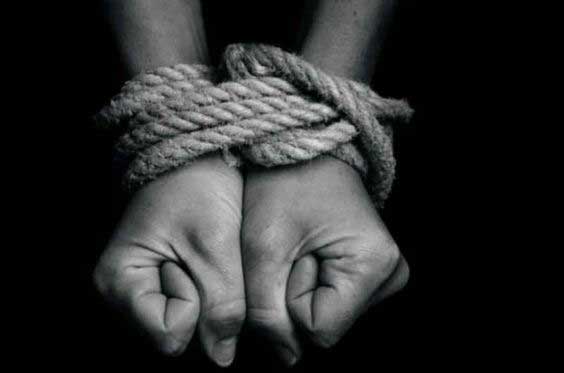The world is on its knees due to an invisible enemy that continues to leave behind a very visible trail of destruction in its path. Over the last few months, many governments implemented coronavirus lockdowns as a containment measure, with a large focus on health systems. However what many forgot as they encouraged hand hygiene and social distancing, was to address the unintended socioeconomic consequences of the pandemic that are just as much a threat to livelihoods and ultimate quality of life of citizens. These include domestic violence, financial anxiety, marginalisation of minority populations and divorce. In this series, RORISANG MOGOJWE shines a light on these consequences as a call to action.
The COVID-19 pandemic has been the fastest-moving global public health crisis in a century, causing significant mortality and morbidity and giving rise to daunting health and socioeconomic challenges. Governments are taking unprecedented measures to limit the spread of the virus, while health and social systems are struggling to cope with rising cases, supply chain bottlenecks, movement restrictions and economic strain.
The United Nations Population Fund (UNFPA) has warned that the pandemic could spell disaster for women’s rights around the world, citing limited or no access to contraception due to global supply chain disruptions, facing unintended pregnancies, gender-based violence and other harmful practices. “Women’s reproductive health and rights must be safeguarded at all costs. The services must continue, the supplies must be delivered, and the vulnerable must be protected and supported,” said UNFPA Executive Director, Natalia Kanemin, a press release.
Domestic violence
Botswana has already reported a spike in reported cases of domestic violence to the police and an overwhelming need for shelters housing victims. According to the Botswana Police Service, a gender-based violence helpline that was launched in April continues to receive an unprecedented number of both women and men reporting domestic abuse. At the same time, the national lockdown that was recently lifted made it far harder for services and NGOs to reach women isolated at home. A result, the combination of socioeconomic challenges brought on by the pandemic, as well as restrictions on movement, have dramatically increased the numbers of women and girls facing abuse in almost all countries.
The Botswana Gender-Based Violence Prevention and Support Centre has noted that the spike in GBV in Botswana mirrors an ugly global trend that coincides with lockdowns for control of COVID-19 almost everywhere.During the lockdown, victims were trapped at home with their abusers. The movement restrictions and lack of access to services made it difficult for them to seek help and there was a spillover at the main shelter that houses these women.
Child Exploitation
An alarming number of children across the country fell prey to sexual predators during the national lockdown. The police recorded over 20 defilement cases during the extreme social distancing in April, with many culprits being close and trusted family members. Many have unfortunately gone unreported due to the cultural practice of protecting known perpetrators. According to UNICEF, control measures that do not account for the gender-specific needs and vulnerabilities of women and girls may also increase their risk of sexual exploitation, abuse and child marriage. UNICEF therefore urges governments to ensure the safety and well being of children amidst the intensifying socioeconomic fallout from the disease.
Violence is preventable, not inevitable
It is a given that we are living in unconventional times and that these unconventional times call for unconventional solutions. Just as COVID-19 has re-engineered so many societal practices, so should countries adapt their efforts in response to these challenges.
To respond to this unintended outcome of the pandemic and to protect those subjected to violence, Botswana should consider putting in place solutions to offer safety. With many victims unable or unwilling to leave their homes for fear of infection or the penalties of breaching lockdown regulations, these solutions could rely more heavily on technologies such as online portals and home visitations. It is perhaps time for President Mokgweetsi Masisi and his government to practise what they preach, which is that the Fourth Industrial Revolution should not leave Batswana behind. Seeing that we are in a state of emergency and that the President has all the power to implement the necessary changes, this is a call to action for the government to walk the talk.
The minister directly responsible for gender affairs, Anna Mokgethi, should stop acting like a bystander in her own ministry. In Norway, for example, teachers and other child welfare service workers have gone mobile, instigating more direct follow-up measures with known vulnerable children. Other countries have reported similar outreach efforts. In France, Germany, Italy, Norway and Spain, pharmacies and supermarkets have become safe spaces where the utterance of a code word, “Mask 19,” signals that urgent protection from a violent partner or cohabitant is required. These locations are often the only retailers open, and shopping for essential groceries is the only accepted reason for people to leave their homes.
The Botswana Police Service should also consider introducing a special GBV unit with trained specialists for dealing directly with cases of domestic and interpersonal abuse. While the introduction of a toll free number for victims to report is a welcome development, it has been noted over the years that law enforcement is not adequately equipped and empowered to deal with GBV. The expectation is to curb the alarming rates of gender-based violence.
The toll free number is 0800 600 144.
Also recommended is for governments and protection authorities to take concrete steps to ensure that protection of children is integral to all COVID-19 prevention and control measures, including but not limited to training health, education and law enforcement practitioners on how to manage disclosure of gender-based violence and child exploitation, collaboration to support GBV survivors, engaging children and adolescents in assessing how COVID-19 affects them, and reporting incidents of abuse and exploitation.The message is clear: esengmongwaneng.




